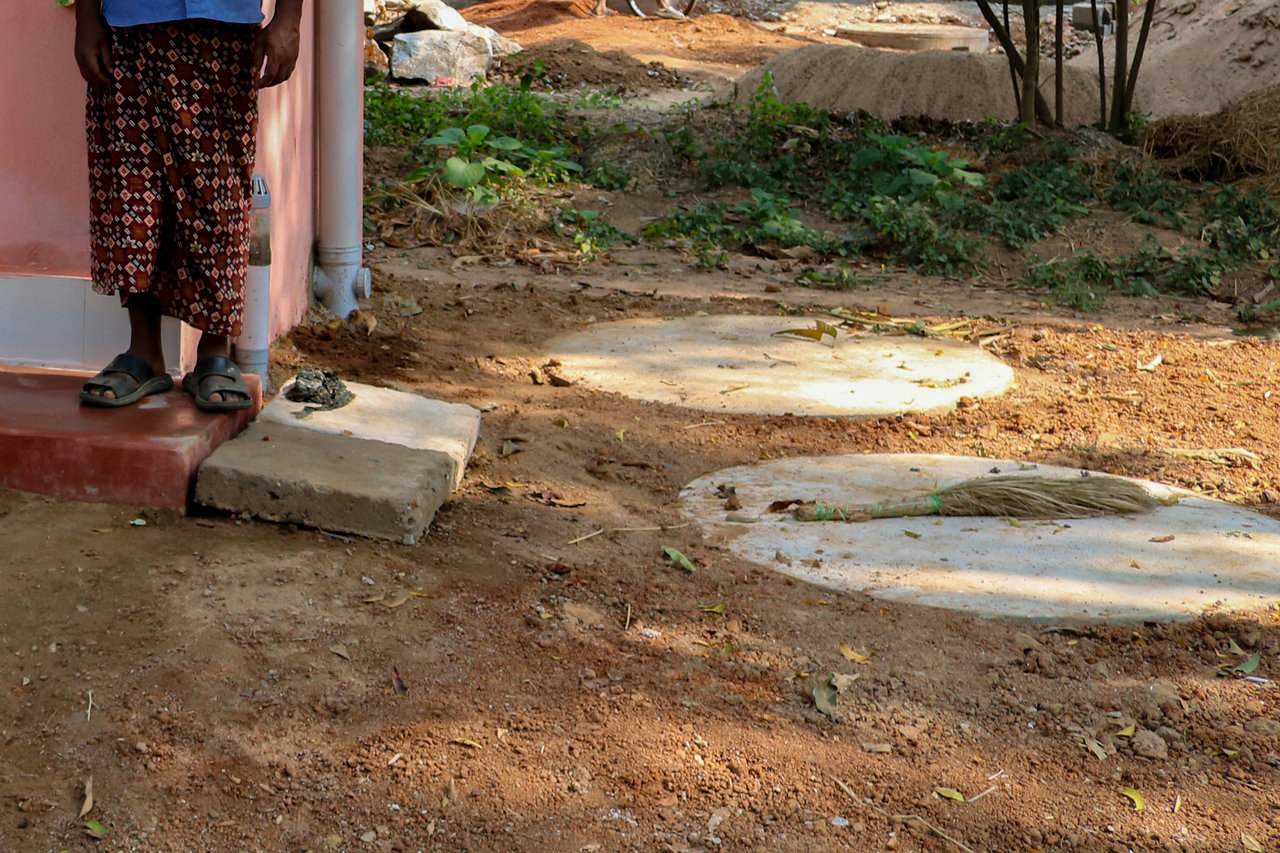Integrating and Deepening Rural Water, Sanitation and Health Outcomes
FeatureBy Been Govindan, Apurva Vijay
20 February 2019

Gram Vikas provides twin-pit for toilets in every household. Photograph by Ajaya Behera.
Gram Vikas has enabled and supported more than 1300 village communities in Odisha and Jharkhand to establish household sanitation facilities and community-owned and managed piped water supply systems. Following the MANTRA approach, institutional and infrastructure systems have been set up in these villages.
The systems package consists of the following components:
• Twin-pit pour flush toilets and bathing rooms (TBR) for every family
• Piped water supply system (PWSS) with a source (bore well/sanitary well/spring) pumped, diverted using electric/solar power or gravity flow into an overhead water reservoir/sump and distributed through two or three taps in every family
• The Village Executive Committee/Village Water and Sanitation Committee (VWSC) for the ownership and management of the Water and Sanitation systems
• The village corpus fund, set up with an initial contribution of INR.1000 on average per family maintained in a bank fixed deposit, whose interest income is to be used by the VWSC to provide financial assistance to new families coming up in the village to build TBR
• A maintenance fund managed by the VWSC to pay for regular upkeep and repairs of the PWSS

Gram Vikas ensures that women and men participate in village meetings on water and sanitation. Photograph by Ajaya Behera.
Gram Vikas Decade V, the new strategic and programmatic approach framework for Gram Vikas from 2019 onwards, aims to deepen the work with the rural communities to achieve a dignified quality of life. The first part of the programme is to ensure consolidation and strengthening connect with communities by extending, building upon and preserving the results already achieved in these communities.
“Integrating and Deepening Rural Water Sanitation & Hygiene Outcomes” for better health and nutrition outcomes is the first programmatic pillar for GV Decade V. The Village Water and Sanitation Committee (VWSC) is the key village level institution that is expected to anchor and manage the activities envisaged under the programme.
The Programme Design is for six key areas of work, covered in six modules:
1. Safe Disposal of Excreta
2. Water Management
3. Personal Hygiene
4. Kitchen Sanitation
5. Solid Waste Management
6. Liquid Waste Management
Photograph by Ajaya Behera.
ACKNOWLEDGEMENT
Village Water and Sanitation Committees are integral to the success of our work in Water, Sanitation and Hygiene.
ABOUT THE AUTHOR
Beena Govindan is a Consultant and Apurva Vijay is a Thematic Manager with Gram Vikas.
RELATED BLOGPOSTS
Rural Odisha farmers enter carbon credit market in grassroots climate push
Farmers in Odisha lead community-driven agro and social forestry, earning carbon credits while restoring degraded lands.
Stories travel through cinema to rural doorsteps in remote corners of Odisha
Cinema that stirred hearts, sparked hope, and found purpose and voice for environmental change.
Odisha villages voice 7,648 demands as local governance listens
Villages in Odisha lead community planning processes to track progress, revise priorities, and align local needs with Gram Panchayat action.